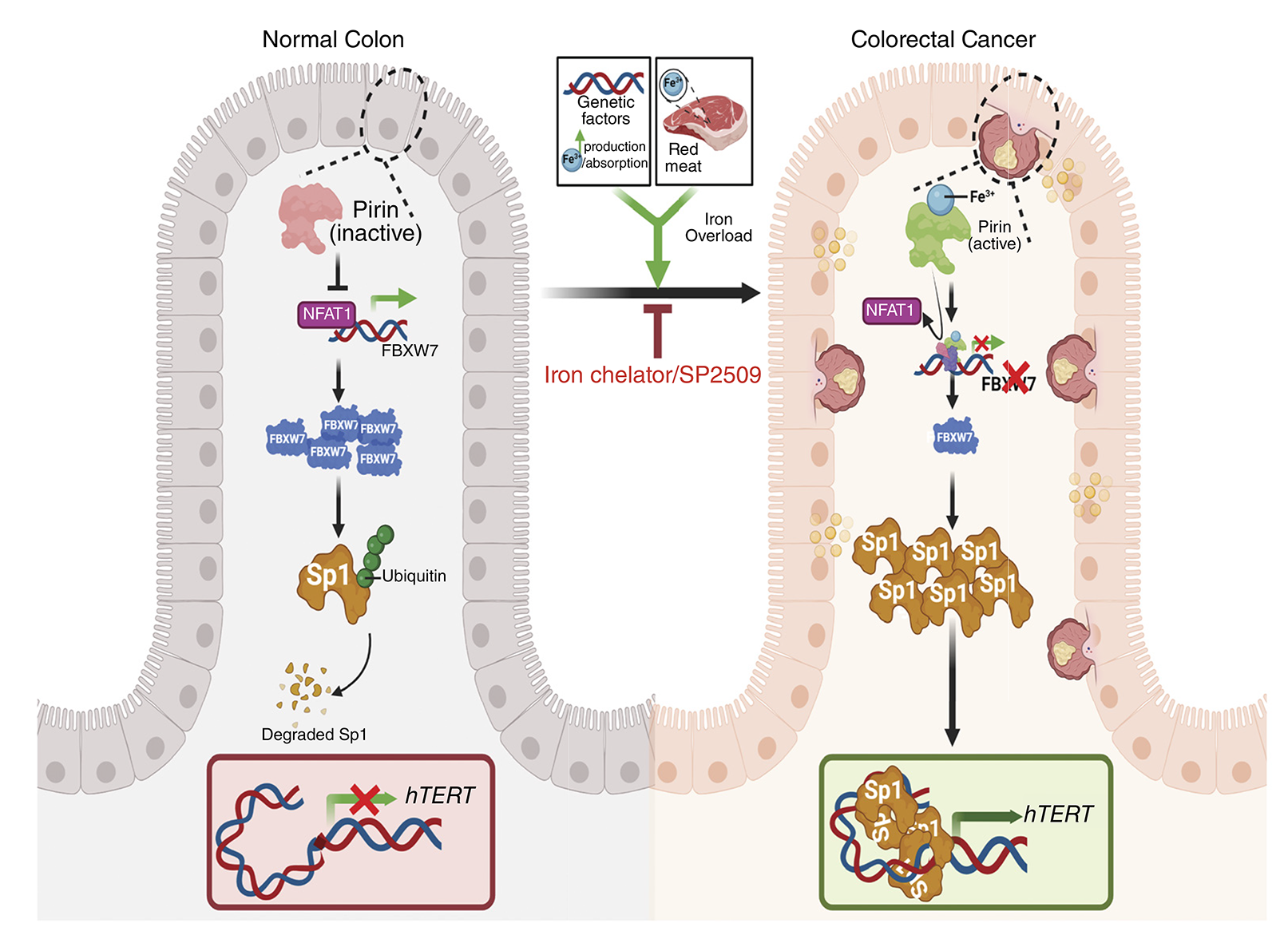Does having too much red meat result in colorectal cancer (CRC)?

F, Model of colorectal cancer pathogenesis by iron-(Fe3+)-dependent Pirin and its therapeutic targeting. The transformation of normal colonic epithelium to colorectal cancer is mainly attributed to genetic events that include driver mutations contributing to the adenoma–carcinoma progression as well as nongenetic factors like high iron levels. Here, we show that Pirin binding with iron-(Fe3+) (from sources such as red meat or because of iron overload due to genetic conditions like hereditary hemochromatosis) leads to its ability as a transcription factor, and this complex reduces NFAT1 occupancy on the FBXW7 promoter. On the reduced synthesis of FBXW7 protein, ubiquitination of Sp1 decreases leading to increased steady-state levels of Sp1. Consequently, Sp1 multimers activate hTERT transcription, leading to the reconstitution and activation of telomerase activity in cancer cells, causing cellular immortalization. Further molecules like SP2509 or iron chelators (DFX) that can block this pathway could be developed for colorectal cancer and other iron-dependent cancers. (F, created with BioRender.com.)
27 August 2024 - A new study led by IMCB, GIS, National Cancer Centre Singapore, and Singapore General Hospital, revealed that high iron levels, often linked to red meat consumption, can drive colorectal cancer by reactivating telomerase, a key enzyme in 90% of cancers. Their research identified a novel mechanism where the iron-binding protein Pirin triggers telomerase reactivation, offering new insights into CRC pathogenesis.
The NRF-CRP-funded collaboration between the two labs – IMCB’s Dr Vinay Tergaonkar (Lead-PI on CRP) and GIS’s Dr Ramanuj DasGupta (Co-I and theme lead on CRP) and team (Joo Leng Low, Mert B. Ozturk and Shumei Chia) led to the initial discovery of SP2509, a small molecule that specifically inhibits Pirin-mediated hTERT reactivation in colorectal cancers by competing with iron-(Fe3+) binding.
This breakthrough has led to a greater understanding of the role of iron overload in cancer biology, paving the way for more innovative treatments to combat colorectal cancer.
Read more about their research here: https://aacrjournals.org/cancerdiscovery/article/doi/10.1158/2159-8290.CD-23-1379/746672/Iron-Fe3-Dependent-Reactivation-of-Telomerase
A*STAR celebrates International Women's Day

From groundbreaking discoveries to cutting-edge research, our researchers are empowering the next generation of female science, technology, engineering and mathematics (STEM) leaders.
Get inspired by our #WomeninSTEM
.png?sfvrsn=2e525642_5)